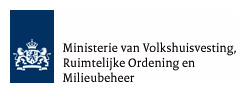Nuclear Energy is not an option – it’s too susceptible to climate change and natural disasters
"We have not only lost our past, but also our future" - Natalia Manzurova, one of the few remaining liquidators of Chernobyl
16.03.2011 |Chantal van den Bossche

READ THE PRESS RELEASE IN FRENCH
READ THE PRESS RELEASE IN GERMAN
READ THE PRESS RELEASE IN DUTCH
READ THE PRESS RELEASE FROM GREENCITY
READ THE SPEECH FROM SABINE BOCK FOR THE ANTI-NUCLEAR RALLY
Impacts of climate change
WECF has been working with victims of nuclear disasters since 1994, including communities living near uranium mines and nuclear test sites, and Chernobyl and Mayak victims. Currently, plans exist to build 60 nuclear power-plants worldwide, often with the argument that nuclear energy is needed to mitigate the effects of climate change through reducing the quantity of greenhouse gases released into the atmposhere. What is often overlooked, however, is that nuclear plants are vulnerable to the impacts of climate change. They require large amounts of cooling water, and need to be taken off the grid in times of drought – a climate condition which countries are likely to increasingly experience due to climate change. As the severe forest fires in Russia last summer showed - which almost reached their nuclear power plants – climate change can lead to nuclear disasters similar to Chernobyl. Nuclear power plants continue to remain a radioactive threat after they have stopped operating, but what if the entire plant ends up under water because of rising sea levels – as would happen to the planned new power plants in the Netherlands?
Future generations pay
For a long time, the nuclear industry argued that the problems we had seen in the past were due to the “old type” of reactors, such as the one in Chernobyl. Japan however, the 3rd largest economy in the world, was known to have the most advanced and secure nuclear power-plants in the world. If Japan’s reactors and engineers cannot cope with a natural disaster, then it is very likely that other countries will also be unable to cope.
As Sabine Bock, director of WECF Germany says “There is not one insurance company which will insure nuclear industry for the immense damage which can occur in the case of a disaster. In the end, it is the taxpayers and the future generations which pay – with their health, lives and land”. We can only try to imagine the current situation is in Japan, and hope that such a disaster will never be repeated. The country is reeling from the effects of the disaster, and our best wishes go out to those effected. . Our concern and solidarity go out to the people of Japan”.
Natalia Manzurova
WECF partner Natalia Manzurova, nuclear scientist and one of the few remaining liquidators of Chernobyl still alive, explains what happened 25 years ago: “try to imagine if a similar nuclear catastrophe would happen here, in this city, and that all of us would be requested to leave our job places immediately and would be transported away in buses. We would not know what had happened to our families, or our children. We would be asked to undress and put on new strange clothes. We would know that we would never be able to go home and live in our former town again – we would have lost our past, and our future.”
READ THE INTERVIEW WECF'S JOHANNA HAUSMANN HAD WITH NATALIA MANZUROVA
READ THE REPORT ON THE MAYAK NUCLEAR ACCIDENT, 50 YEARS AGO
Report on Mayak - The deadly face of nuclear energy
WECF believes that nuclear energy is unacceptable, and calls for a phase-out of nuclear energy as soon as possible, and a halt to nuclear ‘research’ subsidies. It finds it unacceptable that the European Commission is further increasing the research budget for the nuclear industry, which already accounts for more than 50% of the total research budget. Sabine Bock of WECF states: “Export guarantees for the nuclear industry, as is practiced by France, among others, should also be terminated. We also objects to the proposals by Japan and other countries to make nuclear energy eligible for climate funding under the UN climate convention (UNFCCC)”.
Related News
Meet the Winners of the Gender Just Climate Solutions Award at COP24
On the 70th anniversary of the Universal Declaration of Human Rights, we awarded Gender Just Climate Solutions Winners at the climate negotiations in Katowice, Poland
11.12.2018
Getting to the Future We Want
4-7 November, Brussels: European Environmental Bureau’s (EEB) Annual Conference
12.11.2018
What to expect from the climate talks that resumed in Bangkok this week?
COP24: second intersession of the climate change negotiations 2018, Bangkok, Thailand
07.09.2018
Application open for Gender Just Climate Solutions Award 2018!
WECF and partners invite you to participate in the 4th annual Gender Just Climate Solutions Awards
01.08.2018
Women and Gender Constituency Joint Statement On SB48
Real commitment to rights-based, gender-just solutions to climate change is imperative for the effective implementation of the Paris Agreement.
18.06.2018





































